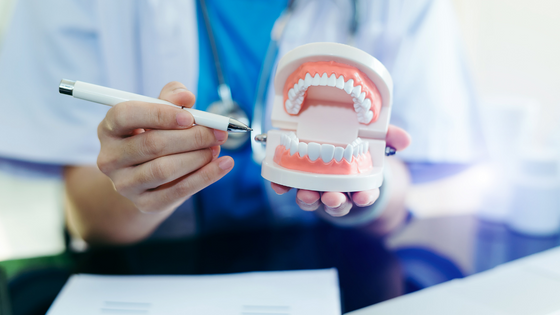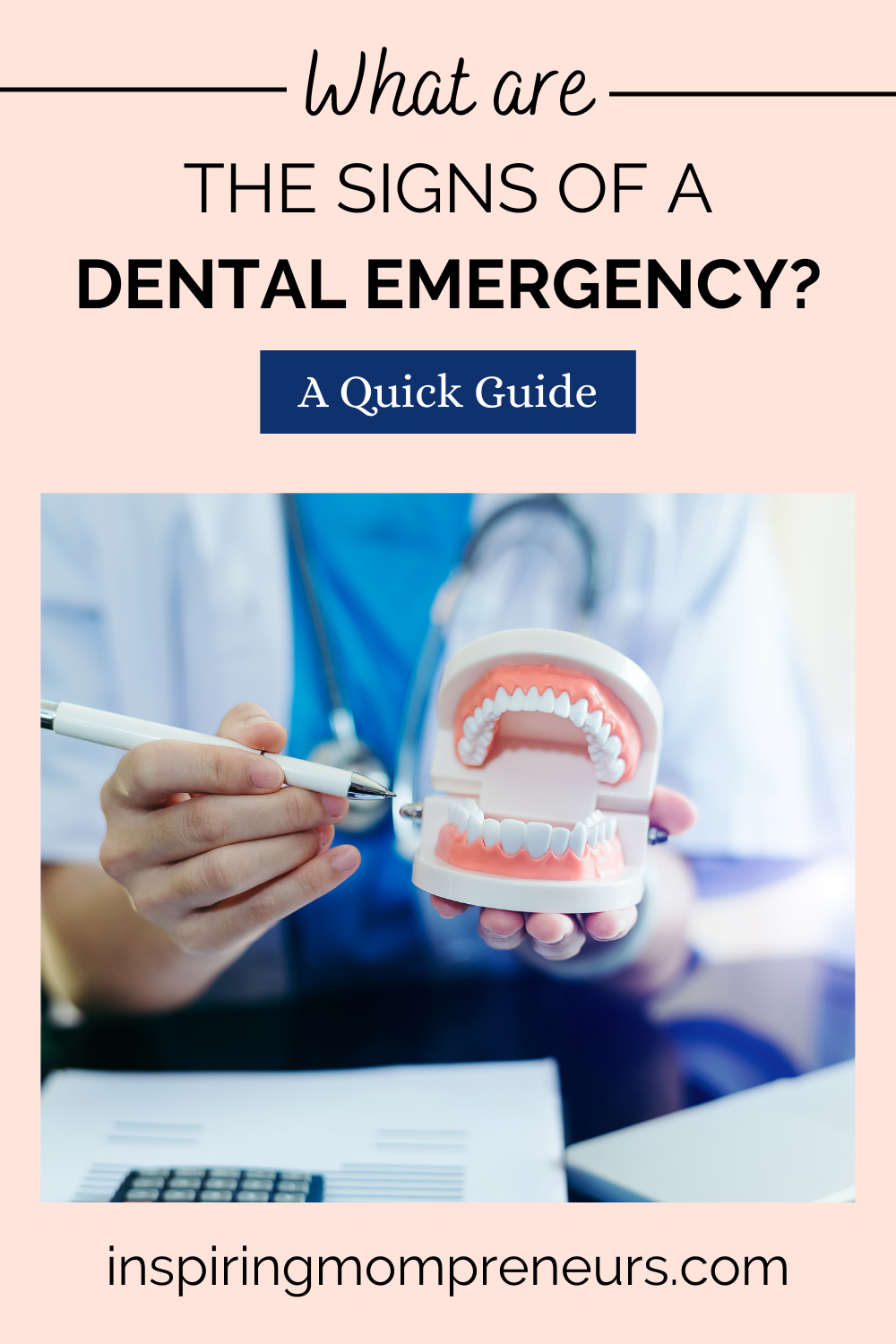What Are The Signs of a Dental Emergency?
A Quick Guide

Health-based emergencies are not fun, especially if they are related to dental health.
And while it is commonplace to assume that all dental emergencies are accompanied by discomfort, this is a false assumption. Yes, the majority of dental emergencies will cause a twinge (or maybe more than a twinge) of pain, but others may fly under the radar altogether.
So, what are some of the signs that you have a dental emergency and need a dentist in Tunbridge Wells?
 Dental pain
Dental pain
If you have extensive dental pain that is driving you to distraction or preventing you from sleeping, you may have a dental abscess.
The symptoms of a dental abscess can include severe tooth discomfort, particularly when biting or chewing, sensitivity to hot and cold temperatures, swelling in the gums or face, fever, and swollen lymph nodes in the neck.
The tooth may also be tender to the touch, and there may be visible pus or a bad taste in the mouth. It’s important to see a dental team as soon as possible if you suspect you have a dental abscess, as it can lead to serious complications if left untreated. So, be sure to call an emergency dental team if you suspect that you have an abscess.
Swelling
Dental swelling can be caused by a number of things, including infection, injury, or inflammation. A dental abscess is a common cause of dental swelling, but other possible causes include periodontal disease, which is an infection of the tissues and bones that support the teeth, a broken or chipped tooth, or an injury to the jaw or face. Inflammation of the gums, such as gingivitis or periodontitis, can also cause swelling.
So, even if it isn’t causing discomfort, always get any swelling to the face, neck or mouth examined by a dental team.
Lost filling or crown
This is a common occurrence which will require emergency care to prevent an infection.
Signs of a loose filling or crown may include sensitivity or pain when biting or chewing or a feeling that the tooth is loose or moving. There may be a change in the way the teeth fit together when biting.
You may also notice a sharp or jagged edge on the filling or crown and a metallic or sour taste in the mouth.
So, call an emergency team as soon as you can.
Knocked out tooth
Handling a knocked-out tooth requires immediate action to increase the chances of the tooth being saved.
Do not wash the tooth, and place it in a sterile container of milk, as this will help to keep the nerves alive. Always be clear when talking to an emergency dental team about how the tooth came loose, and be sure to push for the nearest appointment that they have.
Bleeding
Some bleeding from the mouth following an extraction or trauma to the face is normal. But, if you have a bleed that does not slow, even after applying pressure with a clean gauze for around 20 minutes, you will need to see a dental team. They will be able to diagnose the cause and will be able to apply stitches or glue to prevent further blood loss.
A Final Word
Are you, your husband or your children experiencing any of these signs of a dental emergency? If you suspect a problem, call your local dentist as soon as you can to make an appointment.
Also, remember that many dentist rooms are fully booked way in advance which means you may have to wait for an appointment, so the sooner you act, the better.
Related: 3 Ways of Handling Medical Emergencies In Your Workplace


